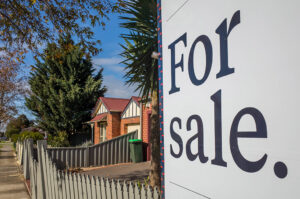Smoke alarms: Everything you need to know
Home > Smoke alarms: Everything you need to know
Smoke alarms are required in owner occupied homes, rental properties or any other residential building.
Under Division 7A of Part 9 of the Environmental Planning and Assessment Regulation 2000, and smoke alarm legislation NSW, smoke alarms must be installed in all buildings in NSW where people sleep.
Smoke alarm legislation NSW stipulates that alarms must meet the requirements of Australian Standard AS 3786, Smoke Alarms.
A seller of a home in NSW makes a warranty under the contract for sale of land that the home is fitted with smoke alarms and complies with the legislation. If it found that the seller has breached this warranty, a purchaser may be able to cancel the contract without penalty.
Download the fact sheet
Download the fact sheet to learn more about smoke alarm legislation in NSW and your obligations when selling a property in NSW.
Ready to get started?
If you’re buying, selling or want to transfer a property, let us help you. We offer expert property law and conveyancing across Newcastle, Maitland, Lake Macquarie, Port Stephens, Central Coast and NSW.
From contract review through to settlement, you’ll have complete confidence in our legal support, making the process of buying or selling a little easier.
How can we help?
Let us help you with a free conveyancing quote.
We just need a few details to begin.
More on selling property
Have a question? We can help.
NSW legislation stipulates that smoke alarms must be installed on every level of your home. This includes owner occupied homes, rental properties, relocatable homes, caravans and camper-vans or any other residential building where people sleep.
Smoke alarms have been required in homes since May 2006, so if you’re going to sell your home, you must ensure that smoke alarms are installed and working.
Legally, there needs to be at least one working smoke alarm for each level of the home.
The smoke alarms installed must comply with Australian Standard 3789, and the standard should be clearly visible on the packaging.
If you fail to comply with this regulation, you may be subject to a fine. Additionally, it is an offence to remove or interfere with an existing smoke alarm except to maintain, repair or replace it.
Fire and Rescue NSW recommends wherever possible, hard-wired and interconnected smoke alarms are installed.
If your alarms cannot be hard-wired, FRNSW recommends smoke alarms that rely on 10-year lithium batteries.
Under Clause 146A of the Environmental Planning and Assessment Act 1979, and Division 7A of Part 9 of the Environmental Planning and Assessment Regulation 2000, at least one working smoke alarm must be installed on each level in all buildings in NSW where people sleep.





